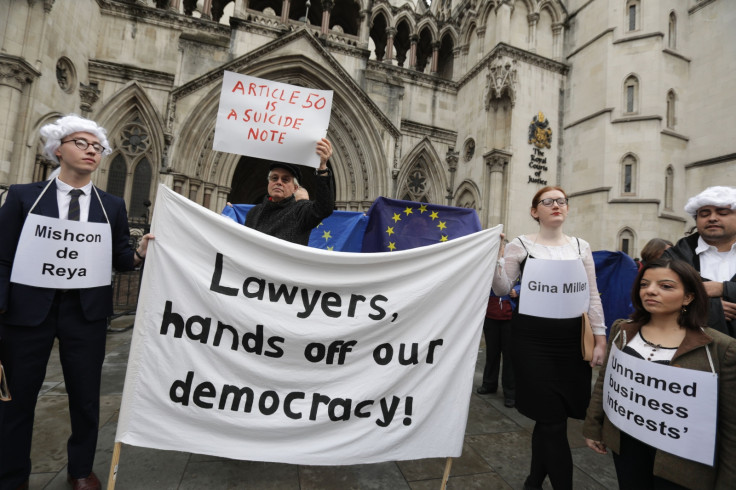MPs 'very likely' to be given vote on Brexit deal
Government lawyer says parliament able to have say on historic EU deal once negotiations conclude.

Downing Street has said it is "very likely" MPs will be able to vote on the final Brexit agreement between the UK and the European Union.
A lawyer representing the government, James Eadie QC, made the comments in the High Court as part of the hearing to decide whether Prime Minister Theresa May was legally allowed to trigger Article 50 without Parliamentary approval.
The stance has since been confirmed by Number 10, the BBC reported. Eadie QC, who was speaking in court about what was likely to happen at the end of the negotiations, in 2019, said: "The government view at the moment is it is very likely that any such agreement will be subject to ratification."
News of the government's position was interpreted by the financial markets as reducing the likelihood of a "hard" Brexit – with the pound making headway against the dollar after weeks of decline.
However, allowing an MP vote only after negotiations with Brussels conclude is unlikely to appease those who demanded a say in parliament before any deal is made.
Lord Pannick, representing the campaigners challenging the government, told the court that should MPs reject the Brexit deal reached, the UK will still have to leave the EU.
"Parliament cannot reverse the notification," he said.
He added the UK would either leave with no agreement or have to reach a new one, saying: "The new agreement cannot restore the rights that are irretrievably lost, and whether there is a new agreement is out of the hands of Parliament."
The outcome of the three-day High Court hearing, which concluded on Tuesday (18 October) will be delivered "as quickly possible", the presiding judge said.
It comes after May announced at the Conservative Party conference that she intends to trigger Article 50 by the end of March 2017.
A number of applicants have challenged the Prime Minister's strategy for Brexit, saying Parliament should be allowed to debate on the government's broad negotiating position, including on immigration and membership of the Single Market, before ministers head to Brussels.
May has argued Parliament doesn't need to be given a vote on Article 50, pointing to the outcome of the EU referendum.
© Copyright IBTimes 2025. All rights reserved.






















